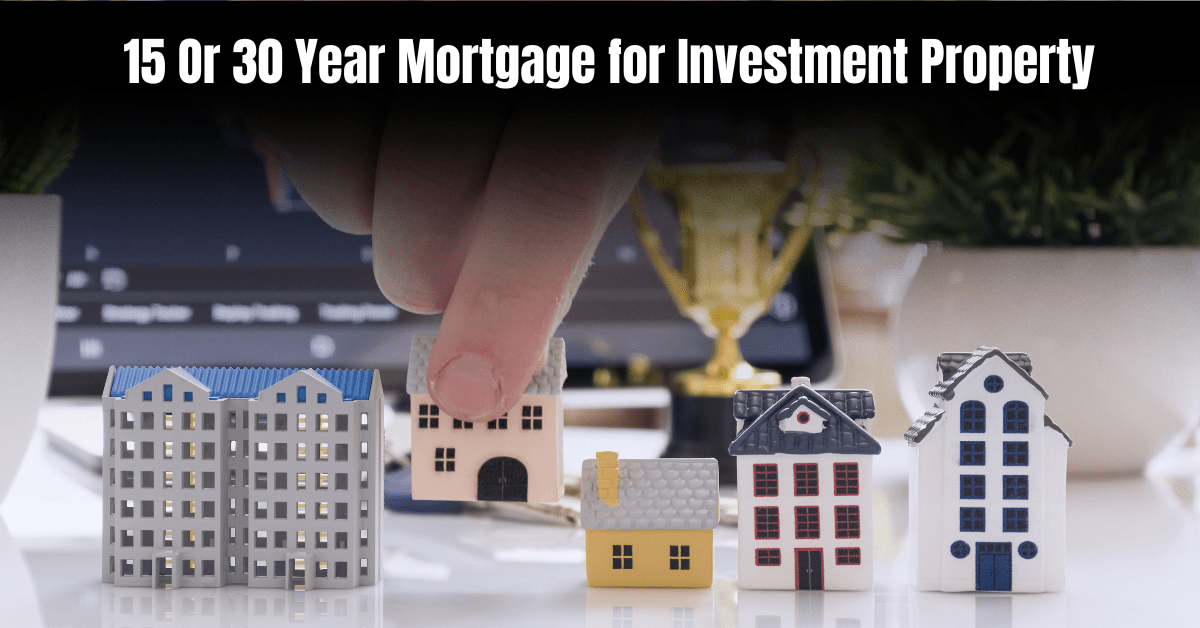When it comes to investing in real estate, one of the most important decisions you’ll have to make is whether to opt for a 15-year mortgage or a 30-year mortgage for your investment property. Both options have their own set of pros and cons, so it’s crucial to carefully consider your financial goals and circumstances before making a choice.
15-Year Mortgage
A 15-year mortgage is a loan that allows you to pay off your investment property in 15 years or less, typically at a higher monthly payment compared to a 30-year mortgage. Here are some advantages and disadvantages of choosing a 15-year mortgage:
| Advantages | Disadvantages |
|---|---|
|
|
30-Year Mortgage
A 30-year mortgage is a loan that allows you to spread your investment property’s repayment over a period of 30 years, resulting in lower monthly payments compared to a 15-year mortgage. Consider the following aspects before opting for a 30-year mortgage:
| Advantages | Disadvantages |
|---|---|
|
|
Which Mortgage Term Is Right for You?
Choosing between a 15-year and 30-year mortgage term for your investment property ultimately depends on your individual circumstances and financial goals. Consider the following factors:
- Your financial situation: Evaluate your current income, expenses, and long-term investment goals. Can you comfortably handle the higher monthly payments of a 15-year mortgage, or would you prefer the flexibility of lower payments with a 30-year mortgage?
- Other investment opportunities: If you have other investment opportunities lined up or want to diversify your portfolio, a 30-year mortgage might allow you to allocate funds elsewhere.
- Risk tolerance: Are you comfortable having debt for a longer period of time, or would you prefer to pay off your investment property sooner?
It’s essential to carefully analyze your financial situation and consult with a mortgage professional who can guide you through the decision-making process. They can help you determine the best mortgage term based on your goals, risk tolerance, and overall financial health.
In Conclusion
Deciding between a 15-year and a 30-year mortgage for an investment property is a significant choice that can impact your finances and investment strategy in the long run. Understanding the advantages and disadvantages of each term, as well as considering your financial situation and goals, will help you make an informed decision.
Remember, every individual’s circumstances are unique, so it’s crucial to seek personalized advice from professionals before making a final choice. Ultimately, the optimal mortgage term is the one that aligns with your financial objectives and allows you to effectively manage your investment property.
Frequently Asked Questions For 15 Or 30 Year Mortgage For Investment Property: Maximize Roi With The Right Loan Term
Is A 15-year Mortgage Better Than A 30-year Mortgage For An Investment Property?
A 15-year mortgage allows you to pay off the loan faster, but a 30-year mortgage offers lower monthly payments.
What Are The Advantages Of A 30-year Mortgage For An Investment Property?
A 30-year mortgage provides higher cash flow and more flexibility for investing in other opportunities.
Can I Qualify For A 15-year Mortgage On An Investment Property?
Qualifying for a 15-year mortgage on an investment property may require a higher credit score and a lower debt-to-income ratio.
Are Interest Rates Higher For A 15-year Mortgage On An Investment Property?
Interest rates for a 15-year mortgage on an investment property may be slightly higher compared to a 30-year mortgage.
Ismail Hossain is the founder of Law Advised. He is an Divorce, Separation, marriage lawyer. Follow him.





Leave a Reply